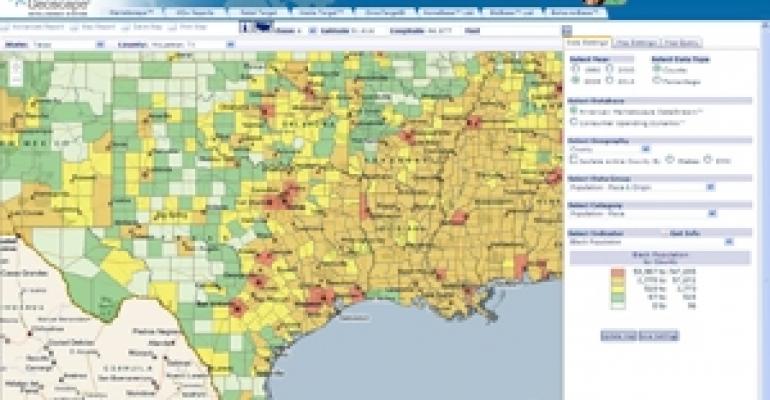
In a market teeming with data providers, some try to distinguish themselves by focusing on niche aspects of marketing and site selection—for example, daytime populations or existing store performance reviews. Geoscape, a Miami-based data resources and intelligence systems provider, has built a name for itself among retailers and consumer product manufacturers by paying close attention to a growing and often misunderstood consumer segment—ethnic shoppers.
Those shoppers tend to look for different things in retail environments than white Americans, says Geoscape CEO Cesar Melgoza. Any chain that aims to build brand loyalty among these groups has to understand how to position its stores. Geoscape, which also offers standard geo-demographic data for the general population, has built a following by helping businesses understand the shopping behaviors of African-Americans, Hispanics, Asians, Eastern Europeans and other ethnic groups.
Some supermarkets, for example, mistakenly assume that Hispanic consumers are price-conscious when it comes to groceries, he points out. But demographic and behavioral data Geoscape collects through proprietary research sources including American MarketScape Datastream and BehaviorBase suggests that Hispanic shoppers place a lot of importance on high quality, home-cooked family meals. That means they will pay extra for good products and are more likely to buy fresh ingredients rather than pre-packaged or frozen foods. If a retailer wants to get Hispanics to shop at its stores, that kind of distinction is important.
“The white non-Hispanic population is not growing at all, so any retailer that is looking into the future must look at these [ethnic] segments very carefully,” Melgoza says. “Companies like Walmart and Kroger and Supervalu usually start by looking at the culturally rich data sets that we offer and then, when they find out how straightforward our data is to use, they typically expand [into other areas] like distribution and long-term planning, in addition to the media and sales opportunities.”
For instance, retailers can take advantage of the Retail Target Analyzer, a geographic information system (GIS) module that allows companies to complete trade area analysis for thousands of stores. The information can then be used to figure out the best site selection strategies, among other things, according to Melgoza. Recently, Geoscape also introduced FREEmium, a free version of its GIS data, complete with socio-demographic, economic and spending statistics for consumers broken down by state or designated market area. Pricing for the firm’s other products can range from $2,500 per year to hundreds of thousands of dollars per year depending on the scope of information, geographic coverage and the size of the user. Smaller companies generally pay smaller licensing fees.
In addition to the availability of detailed information on ethnic consumers, a big part of the appeal of Geoscape products is the relative ease of use, Melgoza points out. Customers set up an account on a Web browser and can come back to their data at any time of night or day, from any computer. Anyone with a basic level of computer literacy can use the system and understand the data—no extensive training required.
“We’ve eliminated a lot of the techno-babble, so that people could do this rapidly,” Melgoza says. “Our maps are very appealing graphical images—they don’t take a lot of fiddling around with the colors and the labels. This kind of analysis normally requires a highly trained analyst in house that would do this in days or weeks, rather than in minutes.”
In addition to the grocers, Geoscape lists Macy’s, Best Buy, Starbucks and Neiman Marcus among its retail clients. The firm has offices both in the U.S. and in Europe and can provide geo-demographic data to U.S. retailers looking to expand overseas and foreign retailers considering a U.S. expansion.
—Elaine Misonzhnik

